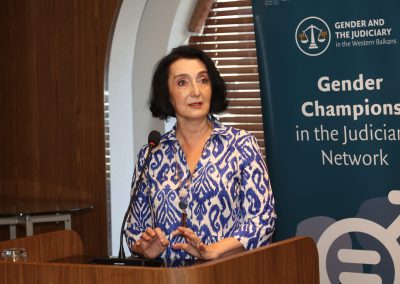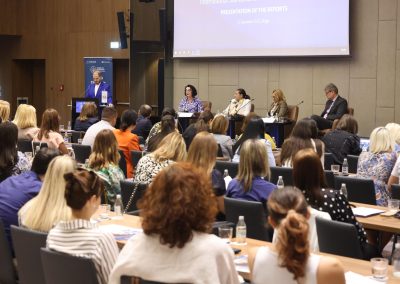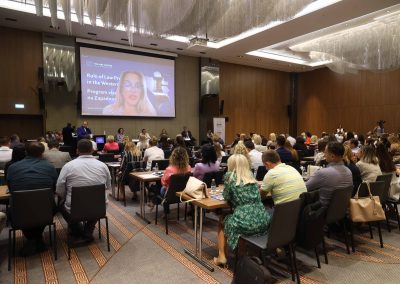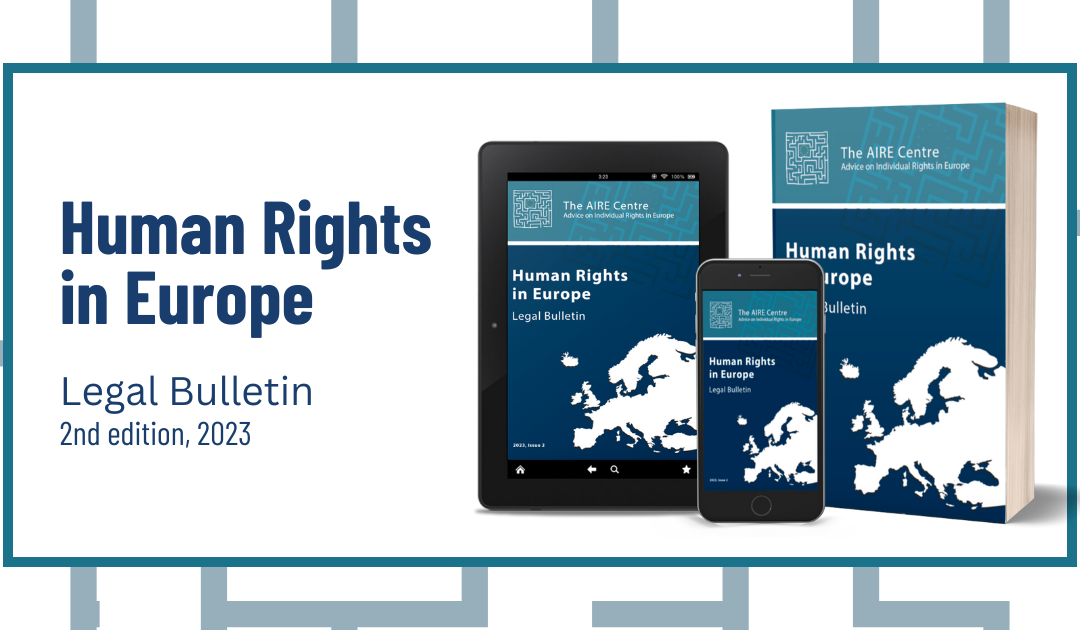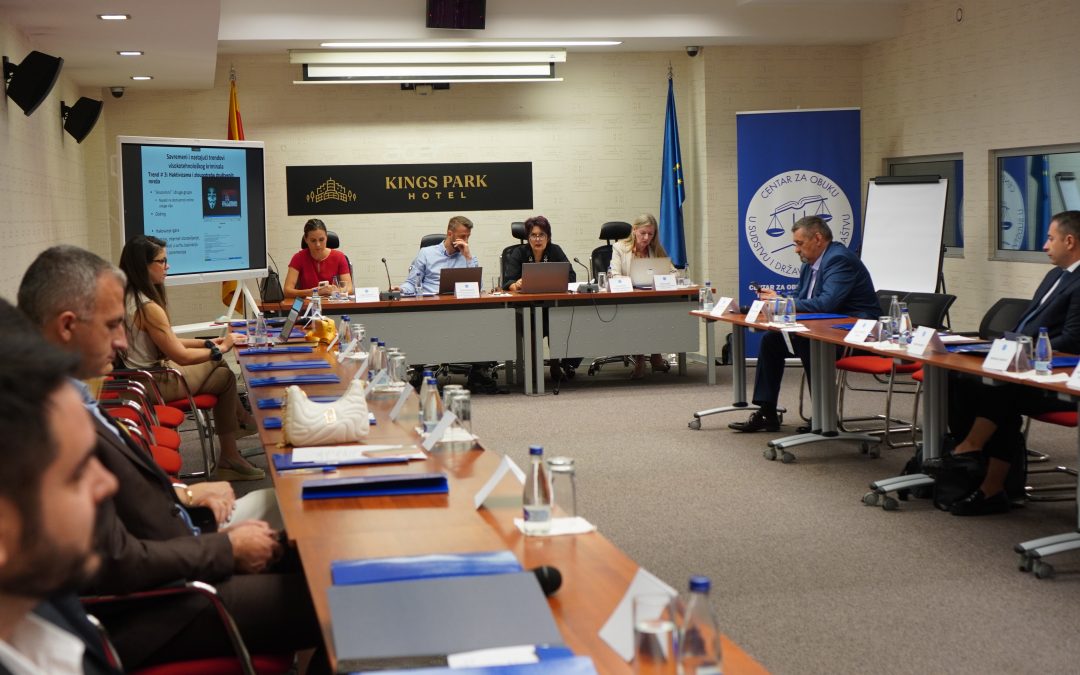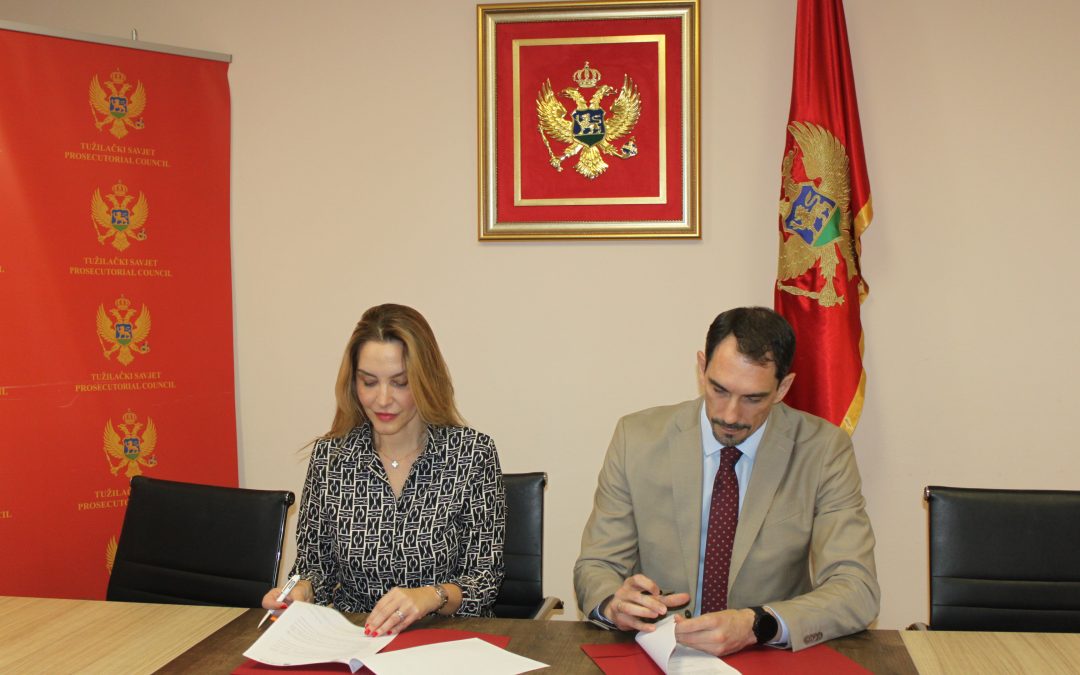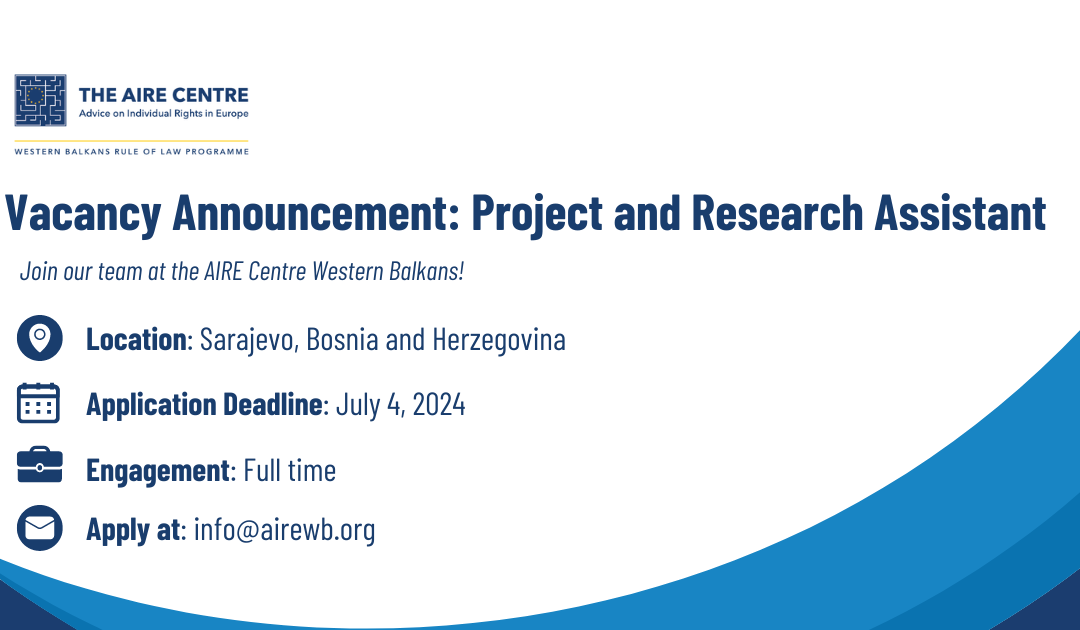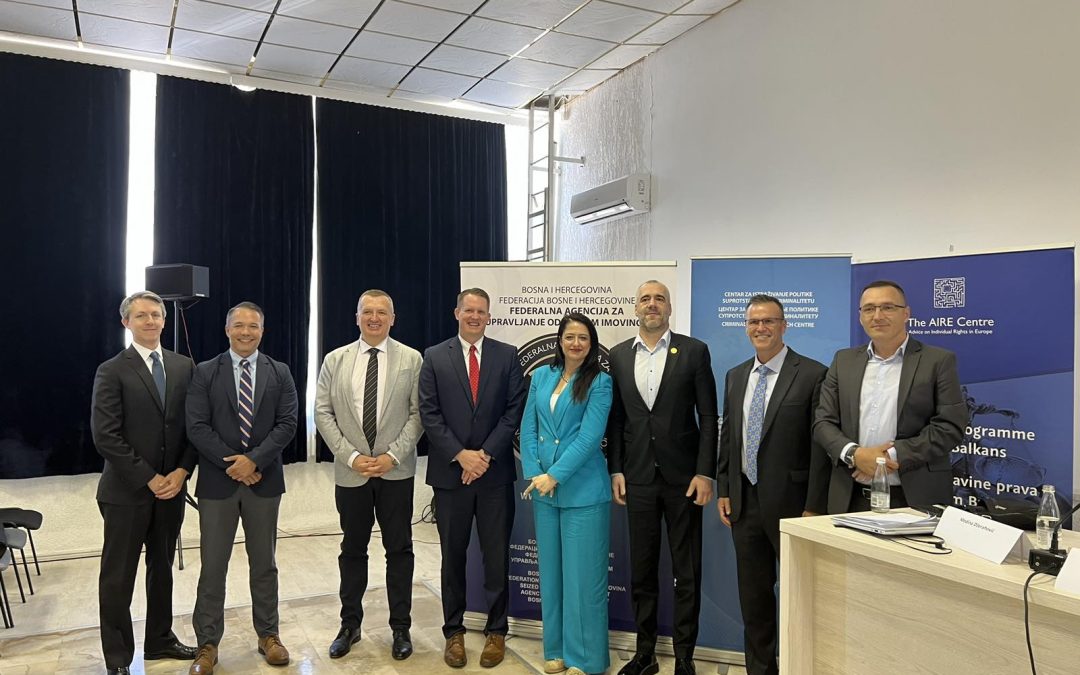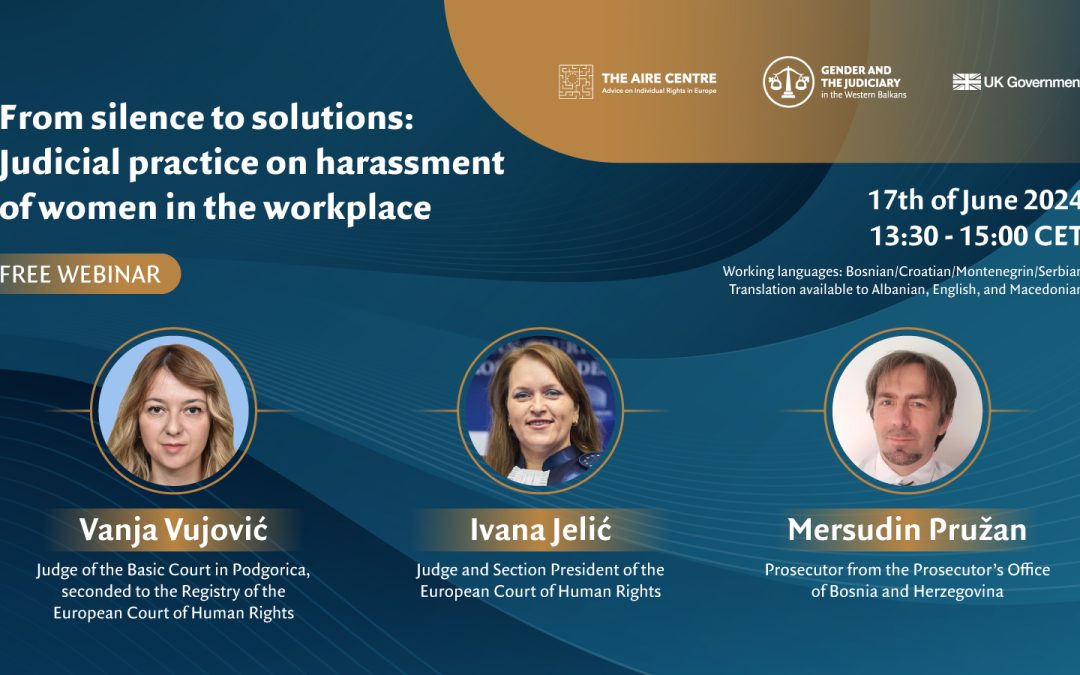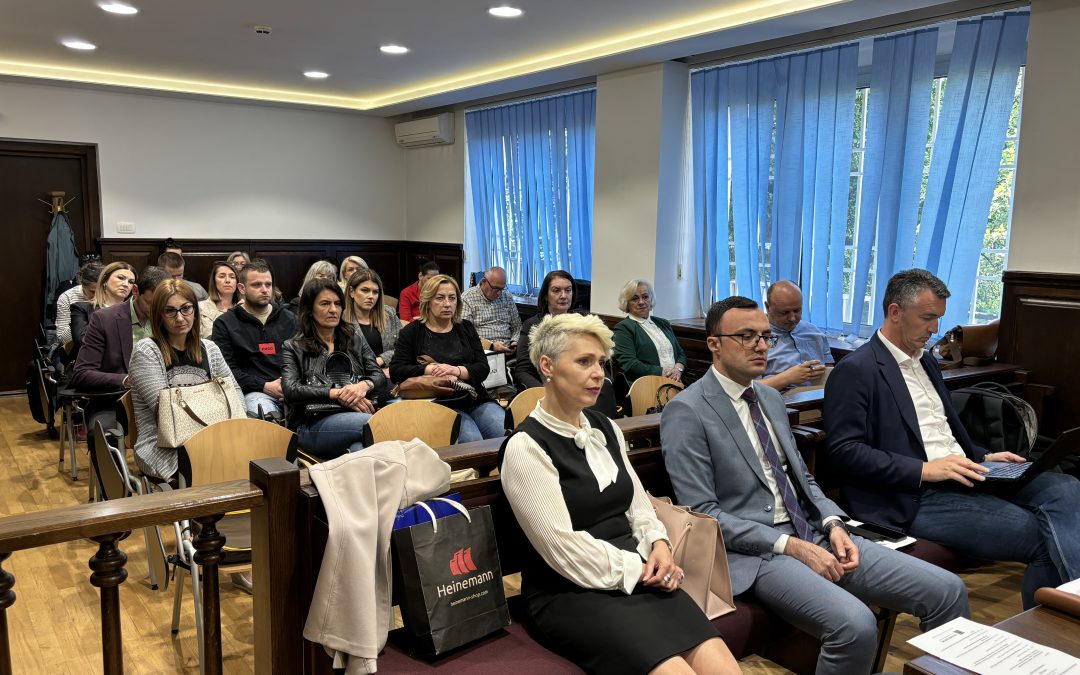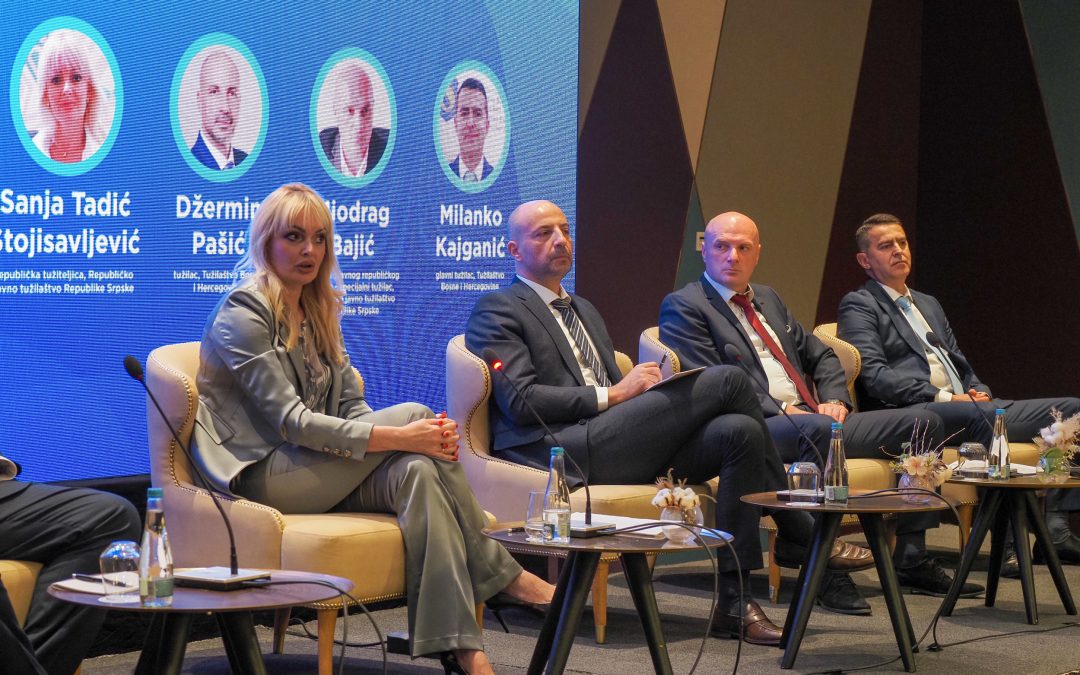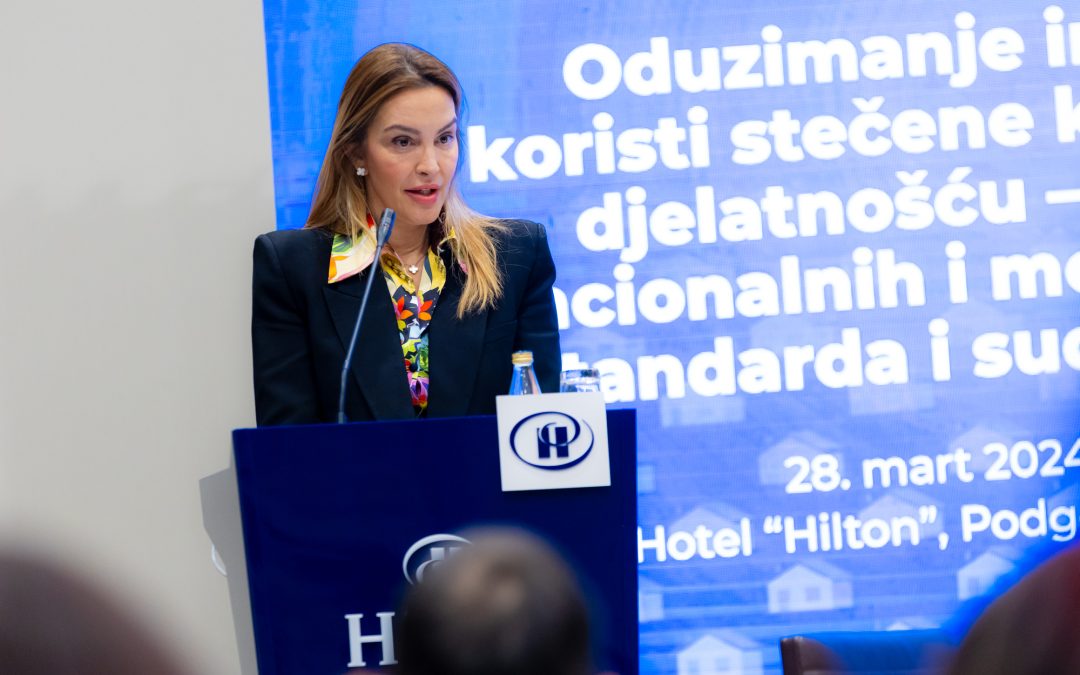Over the past four years (2018-2022), 17 femicide cases were prosecuted in North Macedonia for the killing of 19 women. Notably, most of the victims were either current or former intimate partners of the perpetrators or had familial ties, and all cases examined were committed in an apartment, house, or yard where the victim lived, it was stated in the report “Femicide in the Republic of North Macedonia: The State of Affairs, the Legal Framework and the Court Practice”, presented at today’s conference in Skopje.
The conference on “Femicide in North Macedonia and the Western Balkans – International Standards and Case-Law of Courts”, organised by the AIRE Centre and Academy of Judges and Public Prosecutors of North Macedonia, with the support of the Government of the United Kingdom, gathered over 100 judges and other legal professionals, decision-makers, activists, and representatives of non-governmental and international organisations. Participants examined the legal and societal aspects of femicide, in order to share their insights and discuss strategies that contribute to better protection for women and tackling the issue of femicide and all other forms of gender-based violence.
Majority of femicides examined as a part of this report were carried out using cold weapons, with firearms being the second most common. Among the 17 perpetrators, the majority were unemployed and had psychosis. Out of 17 court proceedings examined as a part of this report, in 14 cases the court found perpetrators guilty and sentenced them to imprisonment. In three proceedings, security measures were ordered (compulsory treatment in a health facility), given the fact that perpetrators were not mentally competent at the time of the crime.
North Macedonia has taken significant strides in adopting international standards and introducing legislation aimed at effective prosecution and prevention of gender-based violence ― some of the most innovative and proactive in the region. However, their effective implementation remains an issue.
Krenar Lloga, Minister of Justice of North Macedonia, stated that there must be “zero tolerance for violence against women, because it is a gross violation of human rights and discrimination against women”.
“It is a violation of human rights that threatens not only the safety and security of the victims, but also prevents women and girls from being full and equal participants in the society. In 2018, we ratified the Istanbul Convention, thereby committing to incorporate into our legislation the standards of this internationally binding document, which states that violence against women is gender-based violence and requires the States to introduce new criminal offences and to harmonise the existing ones. At the same time, we adopted the Action Plan for the implementation of the Convention of the Council of Europe on preventing and combating violence against women and domestic violence. For the purpose of the implementation of the standards enshrined in the Istanbul Convention, this year the Assembly of the Republic of North Macedonia passed the Act Amending the Criminal Code”, explained Lloga.
“For decades, we have been emphasising the crucial importance of gender equality in both preventing and recognizing violence against women. Alongside representatives from various institutions and NGOs, we have consistently raised our voices and strived to reach every woman, aiming to make a positive impact on every story involving any form of violence. Despite our persistent efforts, continuous education initiatives, and changes in institutional approaches, as well as the enhancement of legal frameworks and the legal obligation to handle each case with utmost care, the problem remains. Despite numerous awareness-raising campaigns, violence against women persists, often going unreported and unpunished. Regrettably, in recent times, we have observed an alarming rise in femicides”, said Jovana Trenchevska, Minister of Labor and Social Policy of North Macedonia.
Natasha Gaber-Damjanovska, Director of the Academy of Judges and Public Prosecutors of North Macedonia, said that “in North Macedonia, there are still no special records for femicide cases”. That is why the report “Femicide in the Republic of North Macedonia” seeks to provide insight into the current situation by examining the normative-systemic framework, along with analysing case law from the 2018-2022 period.
“The new amendments to the Criminal Code, in spite of not explicitly using the term ‘femicide’, successfully describe this aggravated crime according to the modern understanding thereof. Generally speaking, the legal framework in relation to gender-based violence and domestic violence provides good grounds for action, but a lot of work must still be done to strengthen its implementation. Also, serious work should be done on the establishment of a penal policy that will more adequately and more severely punish the perpetrators of this crime”, explained Gaber-Damjanovska.
Matthew Lawson, British Ambassador to North Macedonia noted, “Ending violence against women is one of the top priorities in our International Women and Girls Strategy. Our ongoing programmes in North Macedonia show our active support taking action to address the issues still faced by women and girls in today’s society. We are honoured to partner with the AIRE Centre and work with the justice sector to highlight the issues around threats to women and gender equality in the country. In partnership with UNFPA and the Ministry of Labour and Social Policy, we also offer support to implementing the Law against gender based violence. We are also working with the National Youth Council of Macedonia and the Stella Network to help improve young women and girls’ access to the labour market.”
Femicide, the most extreme form of violence against women, is a pressing issue worldwide, and the Western Balkans region is no exception. In order to identify the most common challenges, as well as opportunities for improvement of the judicial practice, the AIRE Centre and FemPlatz have published “Regional report on judicial response to femicide in the Western Balkans”, which examine legal frameworks and court practices concerning these crimes.
“The research on the legal framework and court practice in cases of femicides for the last four-year in North Macedonia is one of the regional research projects conducted using the same methodology. All conducted studies were analysed and compared by the AIRE Centre and FemPlatz, which resulted in the ‘Regional report on femicide’ with several recommendations for all countries”, explained Kosana Beker, Programme Director of FemPlatz and Regional Board Member of Gender Champions in the Judiciary Network (GCJ Network).
“It should be emphasised that North Macedonia is the first country in the Western Balkans region that introduced a separate criminal offence of femicide within recent changes of the Criminal Code in March 2023. Our Regional report clearly showed the need for separate incrimination of femicide, and we are very satisfied with the fact that North Macedonia is a positive example of good practice in the region. Now it is up to the judiciary of North Macedonia to put that provision in practice, as well as to fulfil other recommendations from the Regional report in close cooperation with the AIRE Centre and GCJ Network”, explained Kosana.
Publications “Femicide in the Republic of North Macedonia: The State of Affairs, the Legal Framework and the Court Practice” and “Regional report on judicial response to femicide in the Western Balkans” can be found on the official website of the Gender Champions in the Judiciary Network.
